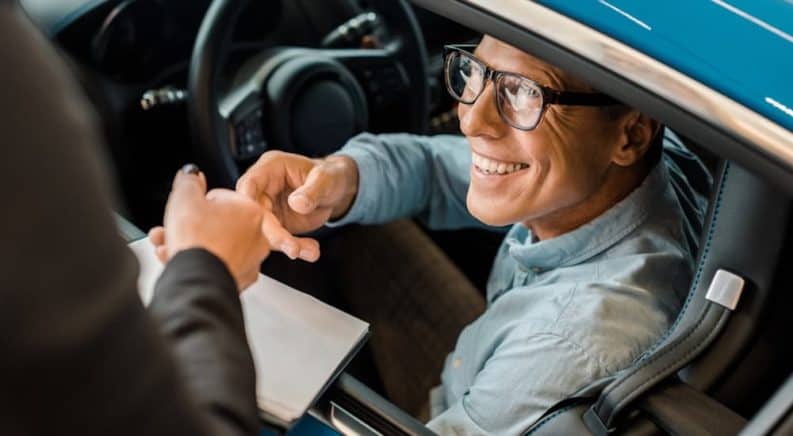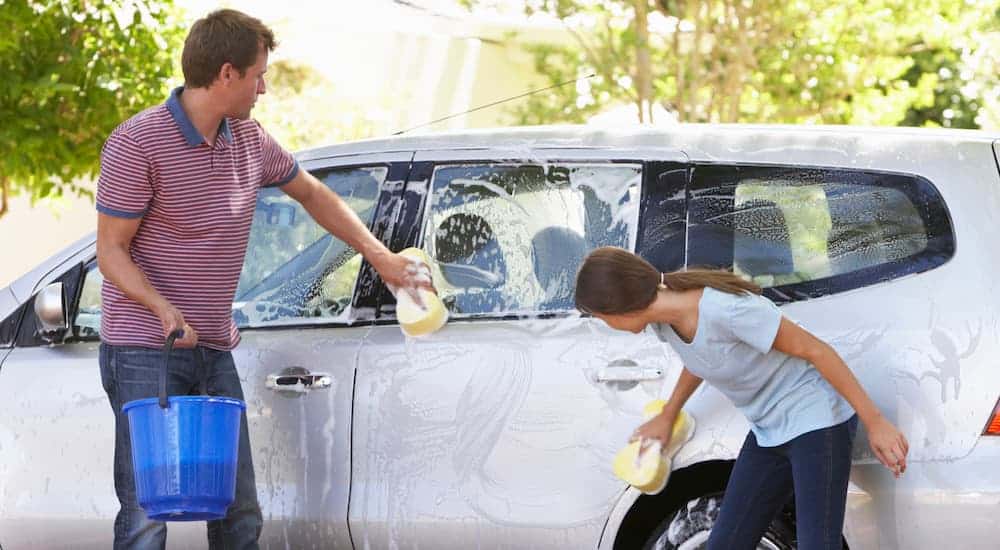Not The Worst Deal
When purchasing a car, you need to make a decision over what quality you expect from the car. Some people choose to go the “new car” route, and others go with lower cost used cars. People that choose new vehicles want a reliable car that they won’t have to worry about maintaining for a few years. Getting a new car with a loan is almost a “right of passage” in some communities when a young adult gets their first full-time job. Every new car on the market is a comfortable and reliable driving experience (f nothing else). Some cars are more vanilla than others but, overall, if you purchase a car brand new then you should be good to go for a few years.
Now, new cars do have some significant downsides. The two major ones are depreciation and financing. As soon as you drive a new car off of the lot, the value of your vehicle drops significantly. The car is no longer “new.” Very few cars depreciate in value, and you should never purchase a personal car thinking that it is a financial investment. Even some of the more expensive cars can have egregious amounts depreciation. That being said, some of the most expensive vehicles don’t depreciate much if at all because there are less of them made and sold, but a vehicle costing $10,000 to around $100,000 will depreciate rather quickly. This means that just because a car is considered a “high-end” or “luxury” model doesn’t mean that it will retain its value.
The other beast that you have to face with new cars is financing. Because new cars are more expensive, most people finance the car over 5-7 years. Even though new cars often have lower interest rates, it is still a bummer to have to pay someone else each month just because you borrowed some money. You get a reliable vehicle, but it certainly comes at a price.
Most Likely The Better Deal

There is nothing wrong with spending money to acquire peace of mind, but not everyone likes paying monthly for an item that can significantly drop in value. There is another half of the population prefers to purchase their cars pre-owned. Used Cars come in a much wider variety and almost always cheaper than their brand new counterparts. You, the consumer, have a greater amount of research sources to use prior to the purchase of the car. If you know what you are doing, there are some real gems out there being sold that you can purchase and enjoy for a fraction of the price of a new car.
Now sure, you can get yourself ripped off if you purchase a car without doing your research first. Not every dealership is trustworthy and honest, and some private sellers can sell you a lemon. While there are laws protecting you, it helps to have a good idea of your credit and what a respectable interest rate would be. Use reliable sources like consumer report and review all of the various aspects that a car can be judged on. You can look up common issues with your car and inquire to the seller if these things have been fixed already. Finally, used car dealers can have more wiggle room on the price of the car. This means that it is possible to negotiate either a cheaper price or a nicer car if you’re buying a car on a budget.
No Seriously, Buy Used
With the plethora of resources out there, there is no reason not to do plenty of research before even walking into a dealership. When you buy a car new, you have to operate under the assumption that “it should be reliable for the next five years.” You can do some research on new cars, but a large wealth of that knowledge will come directly from the car makers website. There are little-to-no independent reviews available on brand new cars.
When you’re looking up used cars, there are thousands of websites, blog articles, and videos for you to digest while you narrow down your perfect car. When you do find the car you like, you can immediately find dealers near you that have the exact model. While you’re browsing the web, you might as well look up the most common problems that cars of that year face. All of this can be done from the comfort of your couch on a phone or laptop.
You can do all of the research in the world on your own, but if you don’t know what you’re looking at when the hood is popped, it is invaluable that you bring along a trusted friend or mechanic who is knowledgeable about the car you’re checking out. The pictures included on the dealer’s website might not show exactly how much rust is on the undercarriage. Maybe the steering is off, and that makes the tires wear quickly. If you arrive at the dealership and the car engine is warm, it is probably worth it to let the car cool off so that you can hear it start just like it will in your driveway in the morning. It gets a little bit easier to think about all this stuff with the more cars you buy.
If You Take Care of It, It Will Sell
If you purchase a used car and treat it well, there can be a good chance that you sell it for not much less than you paid for it. You get an even better deal when you purchase a car that has proof that the service maintenance schedule has been maintained. You can find some great deals if you’re willing to drive around in an “uglier” car. Don’t mind a few dents? You could save a couple thousand over a flawless version of the car. Willing to put up with former smokers car if it is otherwise mechanically sound? Then don’t rush into a deal. Look for the right car. If you’re willing to wait, the right car will find you.
Decide How To Pay
When paying for a used car, you have a few different options. Most people say that you should buy the car outright, with cash, to get the best deal. Depending on your negotiating style and the specific dealership, that may or may not be valid. Buying a car outright is technically never a bad idea. If you want the peace of mind that comes with avoiding another monthly bill, buying a used car outright is the right choice.
Those who are a bit more financially savvy and have the time to monitor their accounts may still wish to finance a car. If the car is a sweet enough deal, your credit rate is high, and the interest rates are low enough, it may be worth it to finance the vehicle and invest your capital elsewhere. The more money you planned on dropping on the car, the more attractive this option would be. This idea of financing, even though you already have the money, requires a great deal of discipline. If you’re not getting a return on your investment that is higher than the interest rate on the car, it defeats the whole purpose of financing the car in the first place.
Either Way, Enjoy
The car buying process is an exciting time and needs to be prepared for thoroughly. Regardless of if you buy a new car or used car, it is vital that you walk away from the transaction with a smile on your face and nothing on your conscience. A car is (hopefully) a long-term asset. While a new car is rarely ever a wrong choice, I’d argue that a used car is a better decision in most situations. It’s a yin-yang situation based on your knowledge, opportunity, and experience.





